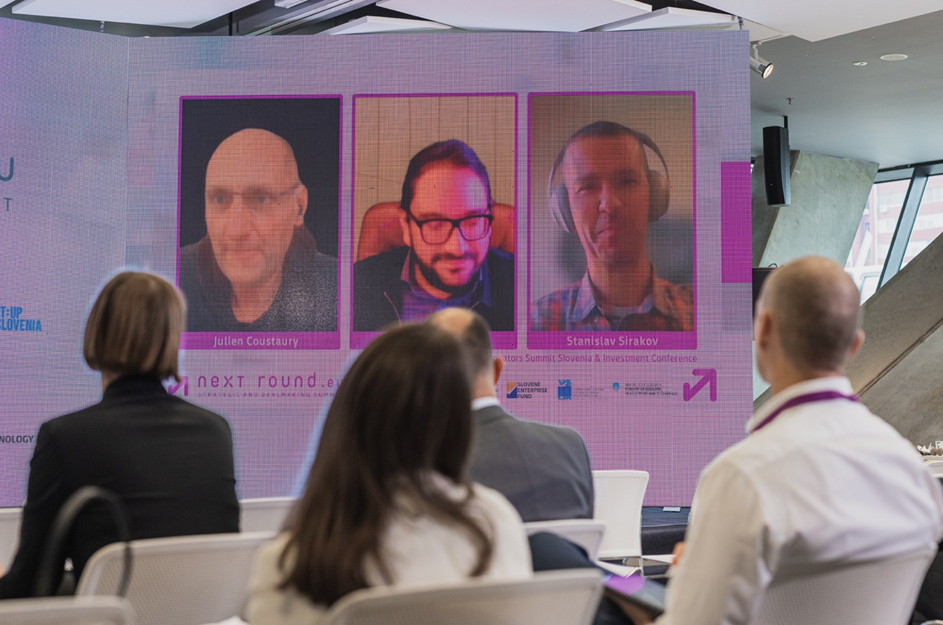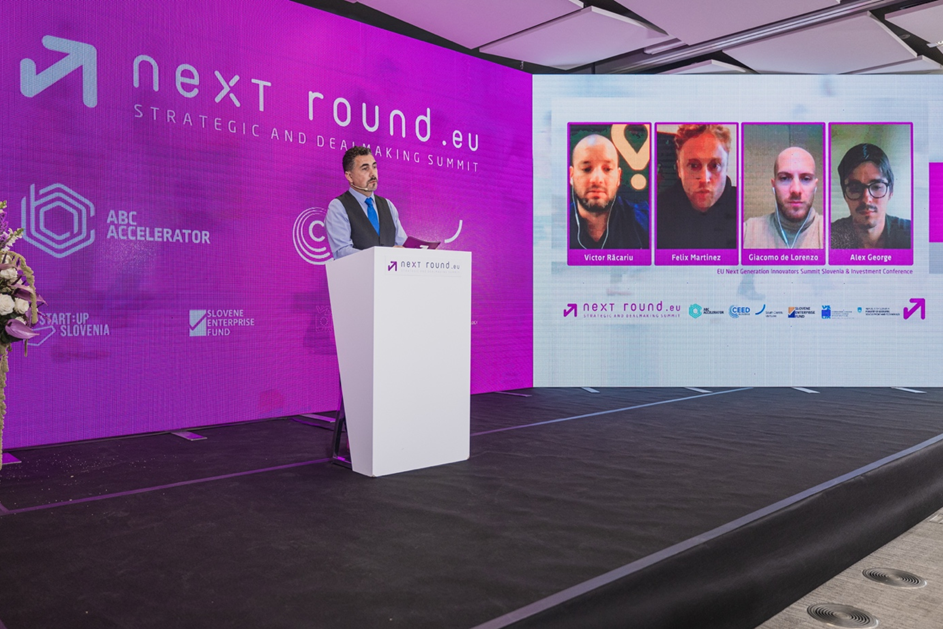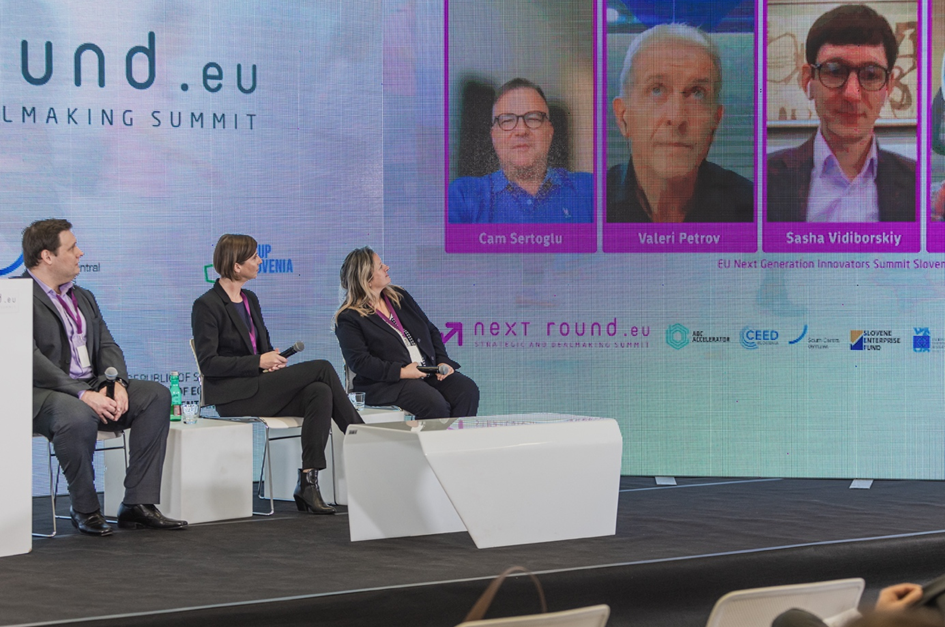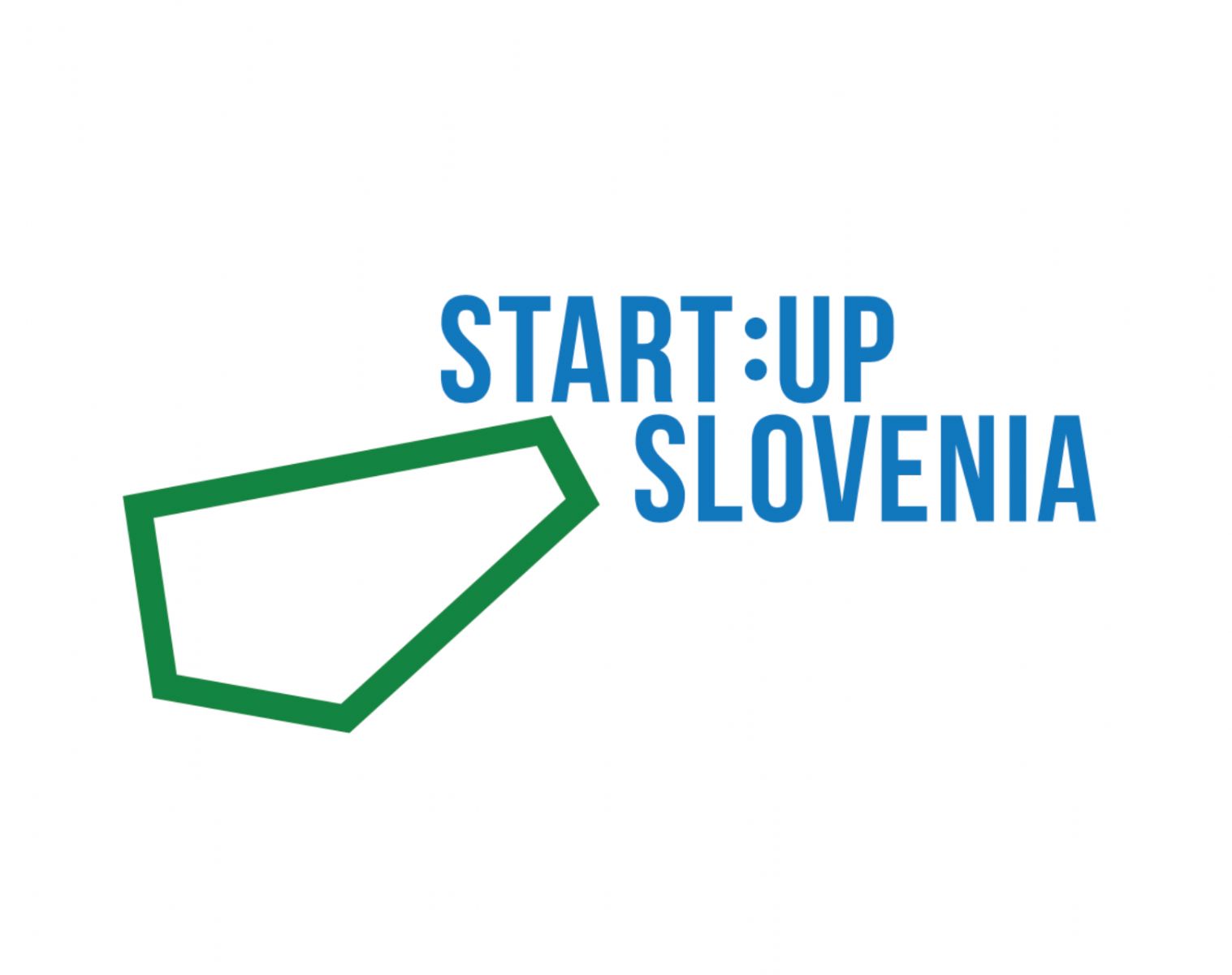This year, Next Round brought together 90 investors, 140 startups from across Europe and 320 other ecosystem stakeholders in a hybrid format. This year's Next Round, which took place on 26-27 November 2021 as part of the Slovene Enterprise Fund's Startup Plus Programme for the third year in a row, also featured the perspectives of experienced regional and global investors on the changes in the ecosystem. Experienced investors and entrepreneurs, including unicorns such as Glovo, UiPath, Bolt and Klarna, presented how the increased amount of investment money is affecting different elements of the European ecosystem. In addition to an interesting investor programme, the event also brought together investors and startups in 350 1:1 meetings.
Record first half of 2021 for the European venture capital
Venture capital investment in European startups soared in 2021 to reach $59 billion, representing 20% of global venture capital investment. In 2019, it ranged between 13% and 14%, ldominated by investments in late-stage companies, totalling $41.4 billion, representing a 300% increase in investment compared to the previous year. However, there was also a significant increase in investment in early and seed-stage companies (Source: Crunchbase). A clear trend of increased interest in European companies is also shown by the accelerated opening of permanent offices by major venture capital funds such as Google Ventures, Accel and Sequoia Capital.
Now is the right time to invest in European venture capital
There are certainly several reasons why investment in Europe is growing so rapidly. Julien Coustary, Partner at venture capital fund Fil Rouge Capital, pointed out that the key reason is that Europe has finally managed to put in place all three key pillars on which a successful startup ecosystem is based: talent + money + exits and acquisitions. Europe has good talent and always has. What has been missing in the past is the entrepreneurial mindset that is increasingly present among entrepreneurs today. Money is also finally starting to flow into the venture capital world. In the past, there were very few exits and acquisitions, but now there are more and more of them, Julien commented.

Experienced investors from the region on the benefits of the conditions in the CEE region.
Another reason, according to Vitaly Polehkin, President of INVESTORO, is that startups are undervalued in Europe, so investors are also looking for opportunities to invest in startups in Europe.
Also, over the last 15 years, beliefs about the location of a company have changed. According to Stanislav Sirakov, Partner at LAUNCHub Ventures, only a few years ago, there was a belief that a company had to move to the US to succeed. Today, you can build a successful company anywhere, and this has been especially true during the pandemic. Europe is also becoming more and more interesting as a business location, as evidenced by the good number of successful companies in Europe. In the third quarter of this year, the number of unicorns in Europe reached 100, including 15 new unicorns.
We need more exits and acquisitions to keep the ecosystem growing
Although the number of exits and acquisitions in Europe is on the rise, reaching a 10% increase in the exit rate compared to the rest of the world, we are still lagging far behind. We need more exits to grow the ecosystem so that investors can continue to invest. It will also require a change in the mindset of large corporates in terms of acquisitions and the introduction of new technologies to be more aggressive and get things moving faster.
»We have to prove to the investor that we can make more money than has been invested in us.« Julien Coustaury
To grow the ecosystem, Europe needs more private money, more sovereign funds and co-investments to give startups even more money. Regulation would also be very welcome, as there are big differences between countries, and deregulation of investment activities to increase flexibility and make it easier to attract foreign investors.
Getting to an exit is much faster now
In the past, it took a very long time for an exit to take place. Although the path to exit has not shortened in recent years, it is much faster today, according to Giacomo de Lorenzo from Klarna, thanks to technology, which now allows companies to act faster and changes the rules of the game. Another reasons are capital and the change in people's mindset. Nevertheless, things are still moving slowly in Europe. US investors manage to secure a faster flow of money than European venture capital funds manage to decide whether it is the right business for them.

A virtual panel with two European unicorns, Glovo and Klarna, and two venture capital funds, Seedcamp and Credo Ventures.
It's not just about the money
Victor Racariu from Glovo says that investment is far from just about the money a company receives. The company worked very hard to attract an investor and, after more than 200 rejections, got an investor who really believes in the business, with whom they share a common vision and values. Giacomo de Lorenzo adds that the key is in the relationship and suggests investing heavily in building a relationship with the investor, especially at the beginning.
»No« does not mean a business is bad
"Every founder gets a lot of noes, just like in sales. And you have to take getting an investment as a sale, and if you get a lot of noes, you shouldn't take it personally." Victor Racariu
Felix Martinez from Seedcamp explained that even if a venture capital fund refuses to invest in your project, it does not mean that it is a bad business. There are various reasons for rejection, e.g. the timing is not right or the project does not fit what investors are looking for. It is therefore very important that as a founder you accept the rejection and move on.
The CEE region and the Balkans remain undercapitalised
The CEE region and the Balkans have a lot of potential and opportunities, but the region still lags far behind the rest of Europe and the developed ecosystems. In the CEE region, 30% of companies choose to bootstrap, compared to only 10% in Europe.
As Sasha Vidiborskiy from venture capital firm Atomico notes, the number of opportunities in the region has increased in recent years, and people's experience, knowledge and skills have improved. They used to talk to 1-2 founders a month, now 10-15.

Hybrid panel with domestic and foreign investors and a representative of the American unicorn Bolt.
Despite the potential and opportunities, according to Valeri Petrov from Eleven Ventures, the region is still undercapitalised, so government programmes are very welcome, but more importantly, private investors need to change their investment culture. This is already happening, but very slowly. The ecosystem will be self-sufficient when the general investment culture also encourages riskier investments. A change in investment culture is very important for a change in capital. There is also much to be done to increase early-stage investment.
»Private investors are interested in the region, but they need proof that there is money to be made in the market. They are waiting for real success stories.« Nina Urbanič
Read how the European Union plans to reduce the backlog in the report from the first part of the Next Round conference at the link below.
bold ambitions of slovenia and europe
Slovenia is still far behind, but new funds are coming in 2022
To fill the gap in financing, the Slovene Enterprise Fund is announcing a new €70 million fund in 2022, said the Fund's Nina Urbanič. There are also some other funds on the horizon in Slovenia that will provide Slovenian founders with growth capital.
»We are seeing big changes in startup managers. They are mostly younger people who have a different mindset and are more willing to take risks. And we need to support that.« Natalija Stošicki from SID Bank
Read more about the plans of the Slovene Enterprise Fund in the interview with the CEO, Maja Tomanič Vidovič.
Digitalisation and the green transition - an opportunity for new start-ups
Although a lot has changed in the last 5 years, Natalija believes that more change is coming in the next few years, in line with the European Union's announcements on digitalisation and the green transition. This is certainly an opportunity for new startups willing to take more risks. Are you one of them?
###
Content support for recipients of P2, SK75 or SI-SK financial products under the "de minimis" scheme is co-financed from the Slovene Enterprise Fund and the European Union from the European Regional Development Fund. This is implemented on the basis of the Content Support for Funds Recipients (SMEs) Programme in the 2018-2023 period, under the Operational Programme for the Implementation of the European Cohesion Policy 2014-2020.
.png)









